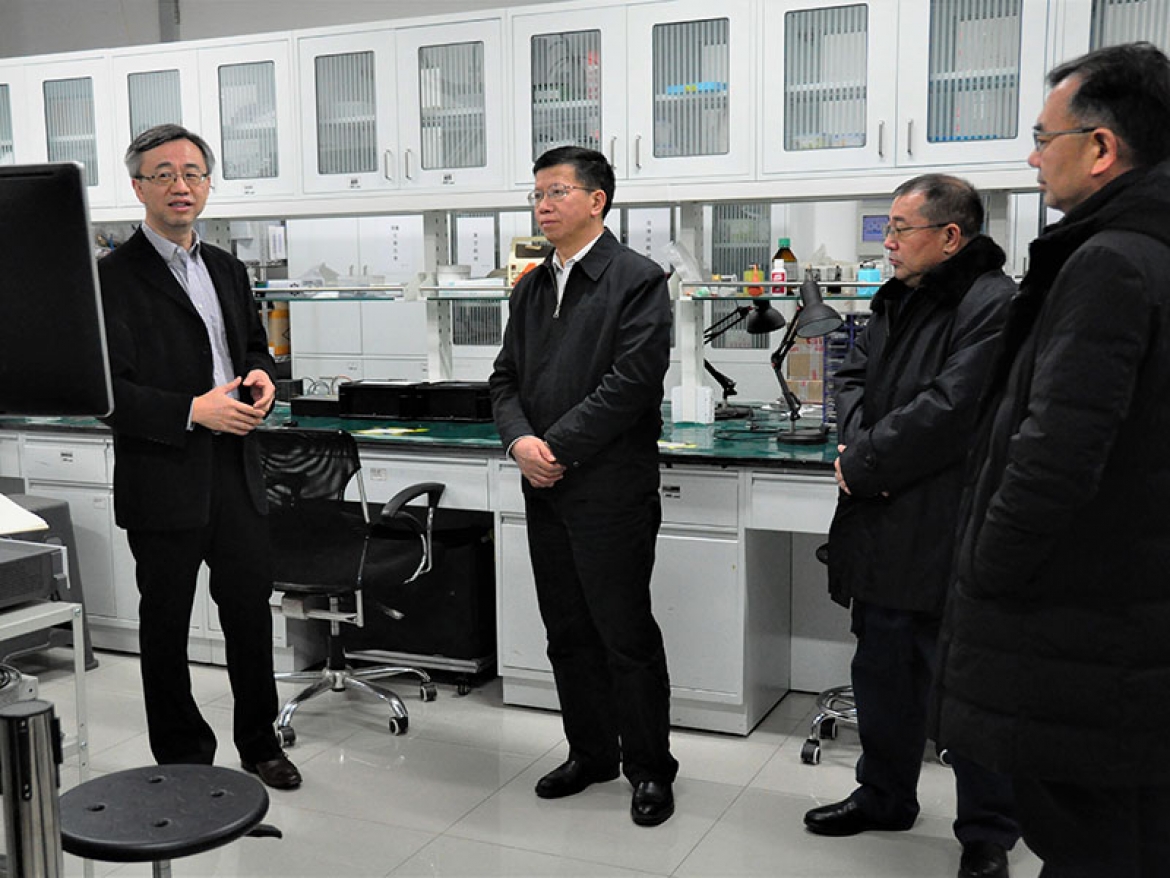CNSA officials visited Tsinghua to discuss the HUBS project
The Deputy Director of the Chinese National Space Administration (CNSA), Mr. WU Yanhua, led a delegation to visit Tsinghua University on Dec. 13, 2019, specifically to discuss a proposed China-led international space project, known as the Hot Universe Baryon Surveyor (HUBS), for X-ray astronomy. Accompanied by Vice President YOU Zheng, Deputy Director Wu and other CNSA officials visited the Low-Temperature Detector (LTD) Laboratory, which is housed in the Department of Astronomy, and learned about the status of detector development for HUBS, which is funded by the China Natural Science Foundation.
Deputy Director Wu and the CNSA delegation then joined Vice President You and the Tsinghua personnel for a discussion of the HUBS project, which was chaired by Prof. MAO Shude, Chair of the Department of Astronomy. Prof. Mao briefly described the key areas of research in the department and highlighted the interplay between science and technology as a unique characteristic that sets the department apart from other astronomy programs in the nation. He strongly emphasized the importance of the HUBS project to the department, and promised unreserved support.
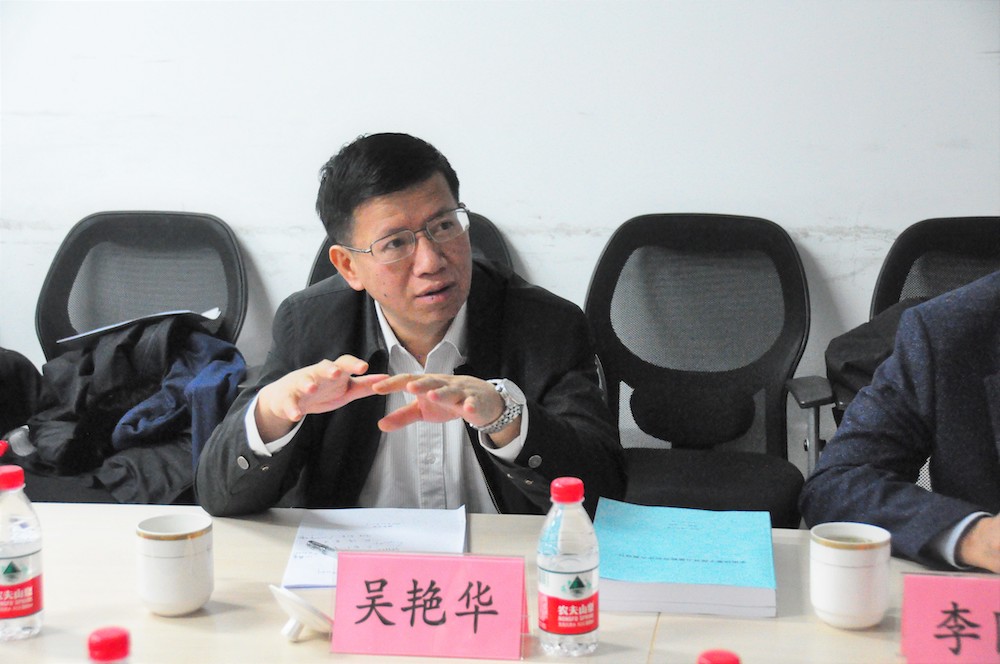
Vice President You warmly welcomed Deputy Director Wu and the CNSA delegation to Tsinghua University. He recalled a long history of the collaboration between CNSA and Tsinghua, as well as the strong support that Tsinghua has received from CNSA in its development. Vice President You stressed that the development of space technologies would be of the highest priority at Tsinghua University, because it is critical to the strategic interests of the nation. Tsinghua wishes to build on its traditional strength and develop the capability to lead major international projects on space science in the future, hoping to realize Chinese contributions to the advancement of astronomy.
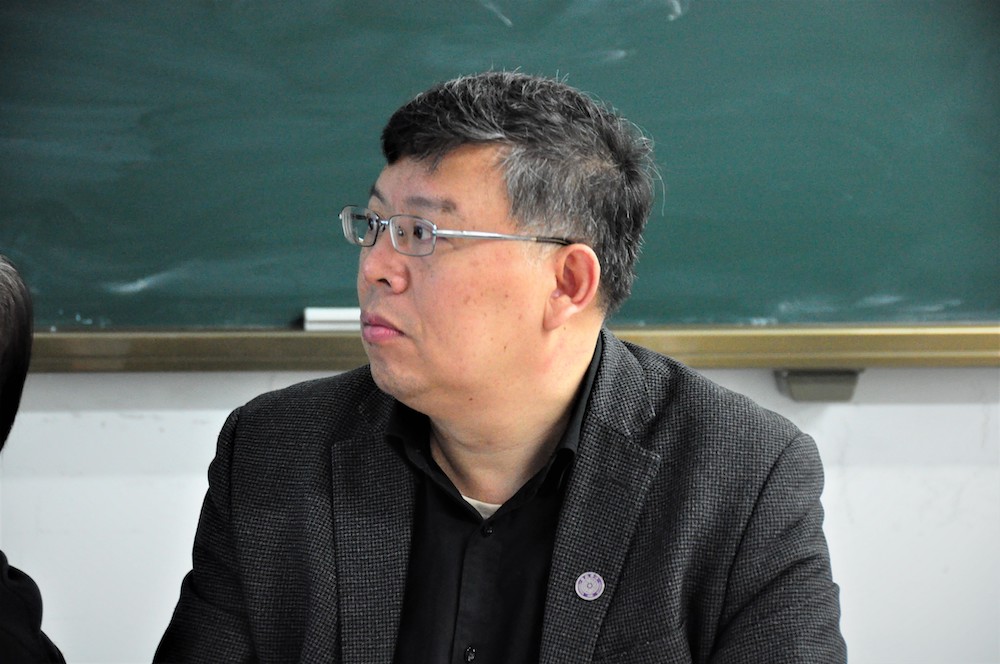
Prof. LI Tipei, a CAS Academian, pointed out that HUBS would feature a state-of-the-art X-ray spectrometer, opening up a new window to exploring the universe. It would not only address the cosmic missing baryon problem, but many other important problems in astrophysics. It is of strategic importance to the nation that the science and technologies are developed in concert. For Tsinghua to become a top university in the world, it is imperative for the university to play a leading role in the development of major space missions. He expressed hope that the Department of Astronomy, the Institute of Advanced Engineering, and the HUBS team could work together to advance this goal.
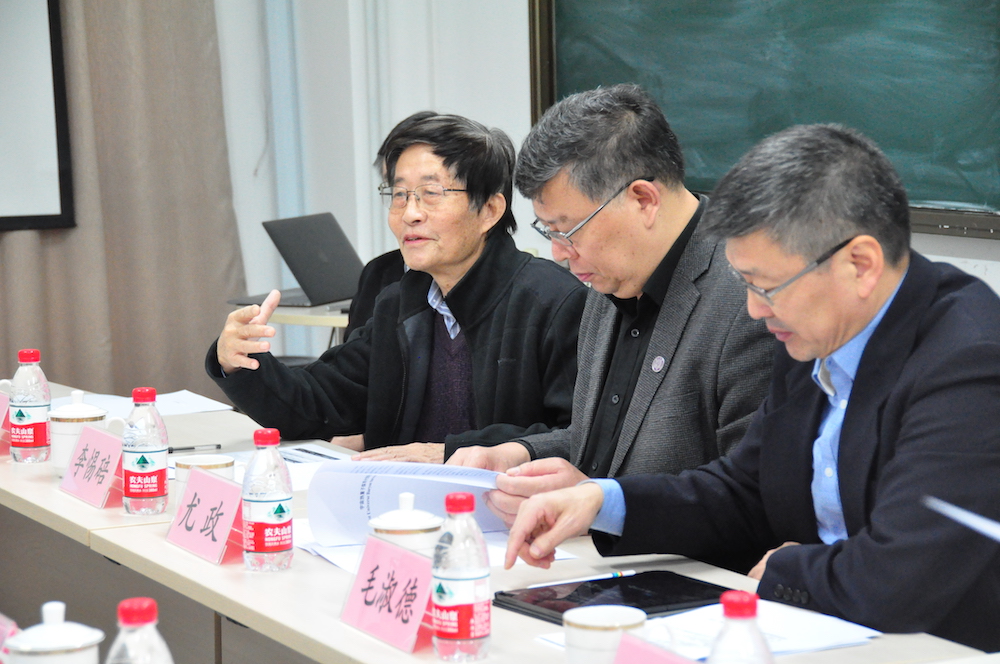
Prof. Cui, the principal investigator (PI) of the HUBS project, highlighted the scientific significance of the project, and briefly described the key objectives, enabling technologies, payload concept and design, and development plans going forward. He outlined two phases of the project: a 5-year technology development phase, with the goal of reaching technical readiness level (TRL) 5-6 on key technologies, followed by a 5-year construction phase. He stressed the importance of the involvement by scientists in China and abroad, to further develop scientific objectives, observing plans, as well as in developing the scientific payload collaboratively. To this end, Prof. Cui described the organization of the HUBS project, including the leading institutes that are responsible for developing key technologies, and science working groups.
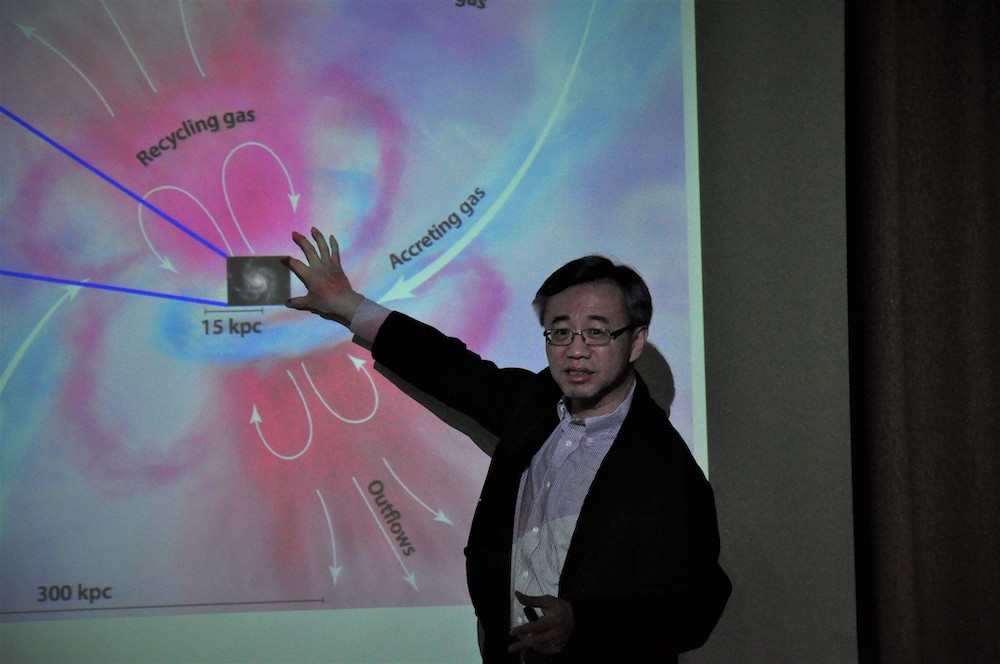
Mr. ZHANG Liangrui, Director of CNSA’s Science and Technology Division, suggested that the HUBS team strive to develop the key technologies in China and to maintain its leadership and influence in the development of the project. Mr. LI Guoping, Director of CNSA’s First Division of System Engineering, spoke positively of the scientific significance of the HUBS project, and expressed his wishes for scientific breakthroughs.
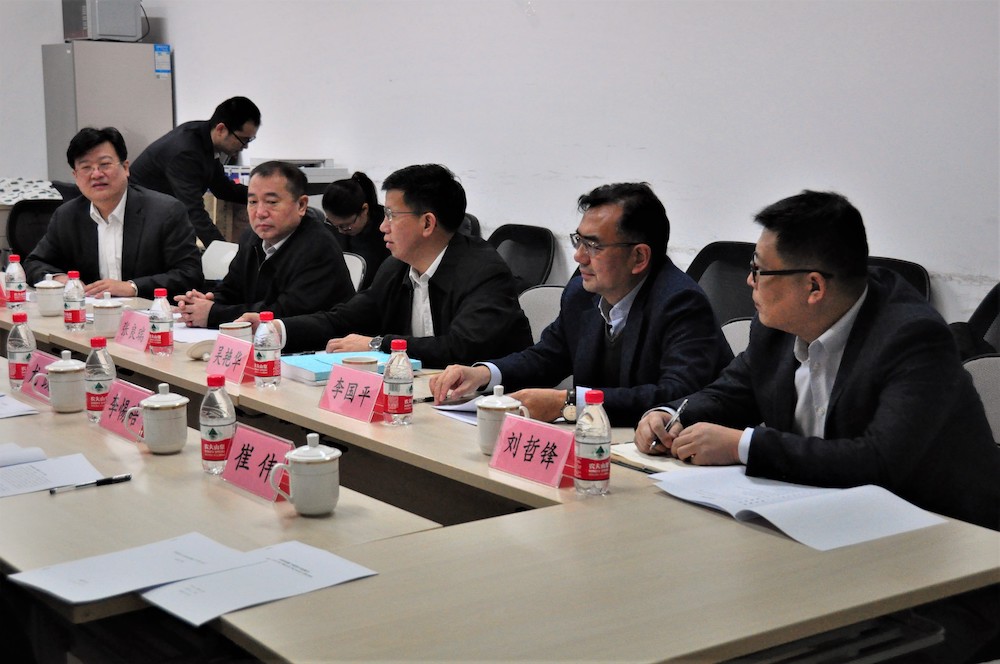
At the conclusion of the meeting, Deputy Director Wu said the CNSA would continue to pay close attention to development in key areas of space science, especially those that contribute significantly to human knowledge, and that CNSA should support Tsinghua for the development of the HUBS project. Moreover, he said, the relevant governmental agencies would further the strategic goal of integrating science, technology, and application, specifically to advance technological development through science and application. On the HUBS project, Deputy Director made three suggestions: 1) International involvement. Even at the team-building stage, scientists aboard could be involved in elucidating core scientific objectives of the project and helping the development of the project with their scientific expertise; 2) Multi-dimensional development. Through the HUBS project, Tsinghua University would strive to establish a mechanism for technology transfer, and, using its prominent influence, lead the universities in China to educate the young generation for space exploration; 3) Three phases of the HUBS project: development of the mission concept, advancement of key technologies, and construction.
Also, Deputy Director Wu pointed out that, with the HUBS project ought to seek support from all relevant agencies (including CNSA, MOST, NSFC, and Department of Education), to further raise its profile in the international community. He also suggested, following the formal meeting, CNSA could work with Tsinghua to establish a joint laboratory for space exploration, helping strengthen its ability to lead major space projects on science in China.
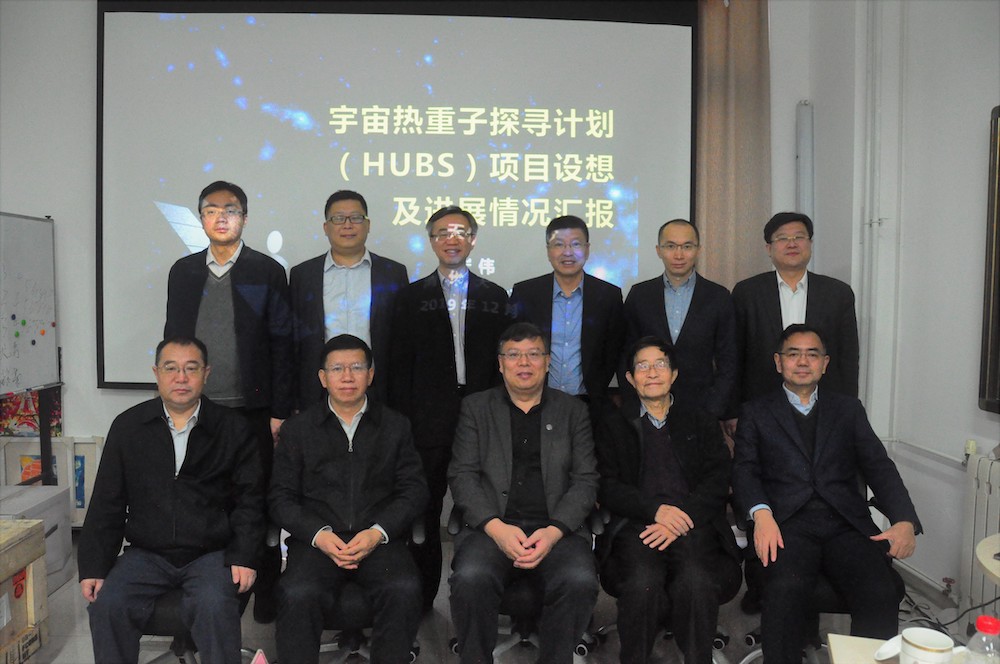
Also in attendance are Mr. LIU Zhefeng,staff at CNSA’s First Division of System Engineering, Mr. XIAO Yu, secretary of Deputy Director Wu, Prof. FENG Hua, Vice Chair of the Department of Astronomy, Mr. GAO Yunfeng, Deputy Director of the Institute of Advanced Engineering (IAE), Mr. GAO Dayong, Director of IAE’s Office of Major Project Management, and so on.



